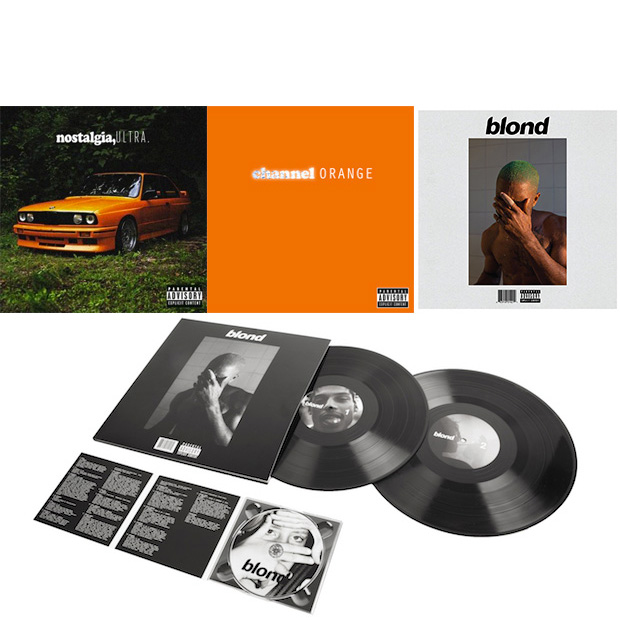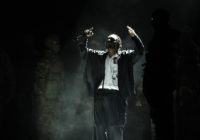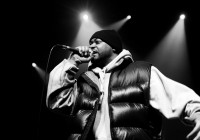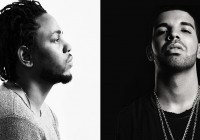
Le 56ème numéro de Mass Appeal sera consacré au King du rap Kendrick Lamar.
Un extrait de l’interview détaillée du MC de Compton est dispo sur le site de Mass Appeal :
Tomorrow is the 20th anniversary of the death of Eric “Eazy-E” Wright. And while “The Godfather of Gangsta Rap” will never be forgotten, today it’s time to pour out a little liquor for another iconic presence in the N.W.A leader’s hometown. The Compton Fashion Center, better known as the popular indoor Compton Swap Meet, closed its doors in January. (The rumor is that Walmart will be taking over the location.) Here in the shopping center’s parking lot, the same place where Dre and Pac once shot a scene for the “California Love (Remix)” music video, people are gathering—not to mourn the loss of a landmark but to commemorate the good times. Leading the celebration is local hero Kendrick Lamar.
The talented 27-year-old rapper is shooting the clip for “King Kunta,” but this occasion is really about the love he has for his city. When the stress of the music business starts to be too much, returning to his roots helps Kendrick put things in perspective. Not that he’s particularly stressed at the moment. To Pimp A Butterfly, the highly anticipated follow-up to his 2012 album good kid, m.A.A.d city spent its first week at the top of the Billboard chart and smashed Spotify streaming records. But impressive stats take a back seat to what matters most: the music.
Kickin’ off like Snoop Dogg’s Doggystyle in an alternate universe, TPAB is knee-deep in the funk one minute, freewheeling into jazz and open-mic poetry the next. A fearless hip hop album, it invokes the rich heritage of African-American music along with the pain and triumphs of the Black experience in what Ice Cube re-christened “AmeriKKKa.” The narrative vacillates between Kendrick’s perceptive first-person account of the ups and downs of rap stardom and spirited calls for black empowerment. To Pimp A Butterfly is a sermon, seance, rally, and memoir, all in one. Kendrick connects the dots from Hub City to the White House to the motherland and back to the C-P-T using street knowledge, some ancient history, and insights gleaned from the ghost of Tupac Shakur.
Some on social media declared the album a classic the same night it unexpectedly dropped. Given the density of the material that took almost two years to make, the praise seemed premature. (Kendrick agrees more time is needed to properly assess the work.) And while there have been a few naysayers, there’s no denying that this record attempts to say something meaningful. And the message is coming from someone who sticks up for hip hop tradition—someone who still believes in competition, looks down at rappers using ghostwriters, and who feels that more people should listen to Killer Mike.
A week after the video shoot, Kendrick flies to New York for a day to promote this year’s Hot 97 Summer Jam, which he’ll headline, and do an interview with MTV. In these few hours, he clarifies that To Pimp A Butterfly is not a play on To Kill A Mockingbird, declines to reveal the identity of the mysterious producer LoveDragon, and confirms that the long talked-about plan to work on a J. Cole collaboration project is still on.
Back in L.A. the next day, the amiable young man who speaks as if he’s trying to choose his words wisely, is in good spirits. Today, the “King Kunta” video is premiering on enormous screens both in Times Square and at L.A. Live. This evening, Kendrick Lamar will be projected larger than life. Yes, he may be a star, but rest assured, he stays grounded.

Mass Appeal: Let’s talk about the meaning of the phrase “To Pimp A Butterfly.” It could mean using your talent to do good for you and your people, or it could be about the music industry pimping artists. As Ice-T said in Pimps Up, Ho’s Down, he knew the label was pimping him and his objective was “to get to the point where I could pimp myself.” Is that similar to what you’re saying?
Kendrick Lamar: That’s definitely similar. Whether I knew it or not, I’d be wrong for saying that Ice-T wasn’t an influence on what I’m talking about because [older rap artists], they’ve been there, done that. Especially him, [with] his longevity in the game. I thank him for giving me that game because it’s something that has been goin’ on for a long time, y’know? You take this raw talent and put a price on it, and you’re not rewarded as much as you should be rewarded. This is a God-given talent. The reward should be infinite [for] our ability to think of what we think of, and even more so, how we make people happy. Ain’t no feeling better than that.
When the album cover was posted up on Instagram, you had a message on there (attributed to the “Lil Homie”) that said, in part: “To Pimp A Butterfly, it’s the American dream….” How is it the American dream?
It’s the American dream because everybody wanna feel like they’re in control of their success. We’re puppets in so many different places [in our lives]. To pimp out something from a negative place and take it to a positive place, that’s what everybody wanna do. Everybody have their own story. I have mine with good kid, m.A.A.d city. You have yours. And to come out of these harsh realities and do something positive, you’re pimping the butterfly. You’re coming out this cocoon of this caterpillar and you’re making the best out of it. Everybody wanna do that.
Considering how Uncle Sam is a character on the album, the term “American dream”combined with “To Pimp A Butterfly” has a sinister vibe to it. If the caterpillar and butterfly represent black people, it brings to mind how prisons are full of black and brown inmates who are used as a source of cheap labor, and how the media fuels fear by constantly showing black criminals on the news.
Yeah, that’s the deeper meaning to it when you pull the layers back. We’re in a society where we definitely are baited to pump fear and keep the negativity going. To keep the cycle continuing, y’know? It’s a pimp situation. And me recognizing that, it’s the start of something new. To let my people—black and brown [because I grew up with] a lot of my ese potnas in Compton—recognize what’s goin’ on. It’s fortunate that I’m in a blessed situation that I ain’t have to be 40, 50 years old to tell the story. I’m 27. I’m fairly young. A lot of people that tell the story they already old and they really can’t talk to the youth because the youth don’t respect them. I got the power in my hands where the youth respect me. Not only as an artist but as a person. It’s only right for me to put that energy out there, and let ’em know what’s goin’ on in the world.
The first words heard on the album are a sample that says “Every N*gger Is A Star.” Why did you choose to open with that?
It represents how I felt when I first got signed. That’s the first initial state—you get money, you feel like this. But overall, in general it represents those without money of my color that’s rich in spirit. You don’t need dollars to feel like you have a place in the world.
You obviously care a lot about the black community and young people in general. It seemed like you were offended that some people took the Billboard article the wrong way and accused you of responsibility politics. [Kendrick was quoted as saying: “What happened to {Michael Brown} should’ve never happened. Never. But when we don’t have respect for ourselves, how do we expect them to respect us?”] Do you think the point you were trying to make was simplified and the meaning was lost?
I think I’ve said everything I need to say. How I look at it…the world is just built off negativity, man. Somebody will say something negative before they say something positive. So, I look at it as that. And for those who spoke negative [about me], hopefully they can understand and know where I come from and know my background and my history, and retract them statements, which I’m sure most of them have done already.
So is your message of respect basically for the younger generation? Are you saying to neighborhoods all across America that are affected by gang violence that it’s better to let go of old beefs—as hard as that might be?
I’m gonna put it to you this way. Where I come from I have tons of…history of rival gang activity. From this neighborhood over here killing my uncle to it being a retaliation back and forth. So when I used the word “respect,” it’s a little bit deeper than me speaking of the community or to the community. I am the community. When I say these things it’s a reflection of me first, and coping with the idea or trying my best to respect this guy because he’s a black man rather than not respecting him because he’s got on a different color than mines. Y’know? And if you can’t understand or respect that, then I don’t know what all you have been through in life. You probably haven’t been through nothin’ [for you to take my comments and] break it down in a negative context. Because I got scars and stripes. Whoever want to question [what I said], all you got to do is come down to the community centers and these detention centers, and see what we doin’ with these convicts and these kids out here. See the time that I have invested, and show your face, and then we can debate about it, rather than you just talking randomly.
When people from the ’hood try to better themselves sometimes they get called a “sell-out.” Do you think that makes it harder for people to change?
Nah, it’s not a problem because if you know who you are internally, then what do you care about what other people have to say? I think that’s a level of insecurity that we have in ourselves. How “real” we’re keepin’ it [or] if we’re not “keepin’ it real.” If you’re real with yourself, and know that your heart is in a good place, then you have nothing to worry about. I’ve seen people that I thought was keepin’ it real for years in the streets, but these be the same guys that turn around and do something way out of character that not only mess up their reputation, but mess up the reputation of the guys around them on a street level. My new meaning for “keepin’ it gangsta” is totally different from the usual. It’s really about takin’ care of your family, handlin’ your business, and puttin’ positive energy out there where everybody can benefit from it, not just yourself.
Pharrell Williams described “King Kunta” as “unapologetically black,” and one reviewer online talked about the “overwhelming blackness” of TPAB. What’s your reaction to that? Do you think this album might resonate more with black people?
I love the response for it. But when you really break down the album, it’s not only for blacks. I have just as equal people outside of my culture understanding the album. This album is more about deciding what you’re gonna do with your fame and your fortune. [Is it] for negative or for positive reasons? When you look at the first half of the album, it’s really me trying to figure it out, y’know? [I’m being] flamboyant, boastin’, being vengeful in certain places. Then going down that line of saying, “OK, I can do something better with it.” So I don’t think it only resonates with blacks, but with people all around the world, man, that can respect the idea of going through a journey or a rebellion, and figuring it out.
Earl Sweatshirt said in a recent interview that he basically constructed his latest album backwards: he decided which song would be the last one on the record, then which song would be first, then filled in the middle, kinda of how he would write a book. What was the process for you making TPAB?
First off, it’s what I want to convey first. What emotions, what feelings I want to get across. What I want it to feel like. If you did not hear one lyric I said on the album, what [does the music] make you feel like? I want that first. So, sonically it had to match up to how I heard it in my head. Next is what do I want to convey as far as my lyrics. What do I want to talk about? And how do I want to talk about it? And last but not least, how do I want to go about executing the story. And I respect Earl for that because it is a similar pattern when you’re constructing music, when you’re constructing art. You got to look at it as a book or a movie. It’s a real process. And a lot of times I have to write down ideas and formulate it as an actual book.
A kid on the Internet pointed out that Section.80 is outlined like a book; good kid, m.A.A.d city like a film; and To Pimp A Butterfly like a poem. Is that how you see it and was that planned?
Yeah, definitely. [There]’s actually a sketch of braille that’s added to the title hidden inside the [CD] booklet that I don’t think nobody has caught yet. You can actually feel the bump lines. But if you can see it, which is the irony of it, you can break down the actual full title of the album.
That’s dope. You told MTV that the original title was going to be 2 Pimp A Caterpillar, since the acronym would be 2.P.A.C. Why did you change it?
Well, I just liked the contrast. These are things that I think a long time about. Everything is intricate. I wouldn’t say intricate, but it’s important for me. It was something about “butterfly,” how soft it sounds, and how hard “pimp” sounds. It was just the contrast. That’s how my music is. It’s a roller coaster. It’s cohesive enough, but it’s up and down. You’re going through these different emotions, and I wanted [the title] to reflect that.
Do you think a violent rebellion like Pac was suggesting in the interview soundbites at the end of TPAB could happen?
Once the true rebellion happens, there’s no going back. It’s like war with two enemy ’hoods; it basically never ends. And I think it’s enough frustration in the world now if something crack off on a major, major, major scale, it’s gonna be destruction. I’m talkin’ ’bout through the whole world. This is the Rapture. This is God comin’ back and you’re hearin’ the horns and the skies crackin’ open. You dig what I’m sayin’? They puttin’ chips in people’s bodies now, y’know? So with that being said, hopefully it’s more about us as people sayin’, “Enough is enough,” and educating the next man with some wisdom that I have or that you have, and makin’ it a collabo thing where we can all benefit from it in a positive way. Rather than takin’ it out in full rage, like we want to—like I want to, like he want to, like she want to. If we can deal with it like that, then that’ll be a plus on our end. But, if we decide we don’t, then you know what drama that brings.
If Pac was alive, what song would you have wanted him to kick a verse on?
You know when the beat switches on “The Blacker The Berry”? I’d have him go off over that, and tone it all the way down, but in his aggressive tone, man. And give it more of a sincere attribute to the song because the song is so aggressive. But you know when he comes on, his spirit is just so warm, he’s gonna speak nothing but the truth. So when that beat breaks down into that, and then goes into “You Ain’t Gotta Lie,” that’s all him.
Could you break down “These Walls”? You go from speaking about sugar walls to prison walls, and sending a message to that one dude from “Sing About Me.”
It’s actually a theme about no matter how much money you have, no matter how much success you have, you’re always human. You always feel the same emotions. Whether it’s love or whether it’s hate. Or in this case, whether you’re being spiteful or being vengeful in some type of way. I think that last verse represents a lot of my potnas that go through any which way they can to get back at their enemy. Someway, somehow, just to put that hatred back in your heart.
When you say “Compton to Congress…” on “Hood Politics” is there any deeper meaning to that? You’re not thinking of maybe one day, you know…
[Smiles] Nothing is a coincidence. [Laughs] Put it to you that way. Them words are no coincidence. They were well thought out.
You’ve really taken what fans say to heart, as evidenced on “Mortal Man.” But you also ask those people who look to you for inspiration and guidance: “How many leaders you said you needed then left ’em for dead?”
What I like most about “Mortal Man” is how it’s set up. How it plays coming out of “i.” Because the end [of “i”] is stressing leadership. [The fight breaks out, and I’m saying], “I’m on stage, y’all. Listen to me. Everybody get in position. We don’t have to be doin’ none of this.” You know what I mean? Then it goes into “Mortal Man,” [and] I’m questioning that same leadership. [It’s] me questioning myself. I can make a song like “i,” but are the homies that I’m performing it for gonna listen to it? So it still brings back the insecurity. So a song like “Mortal Man” [is] questioning not only myself, but questioning what has happened to the past leaders that’s put way more work in and touched way more hearts than I have.
What do you think is the future of your generation?
I think the future of my generation is entrepreneurs times a hundred. We’ll probably be one of the most prosperous generations in history. Not only do we have the belief, but we have the work ethic to go out there and get it. We are very independent. We are very confident in our own identity, which is a great thing. Because what this [generation] has is more people starting their own business and not being confined to what [an existing] company has to offer [them]. But, on the other hand, our belief system is gonna play a major part in it. Our belief system is not the way how my parents were, how my grandparents were, and the more and more time goes on, we lose that thought or idea of God and energy. So what happens is we stop caring for people and we stop honoring and respecting people, you feel me? So I think once we grab that aspect back into my generation we’re gonna be alright.


![MASS APPEAL COVER - KENDRICK LAMAR [INTERVIEW]](https://hiphop4life.fr/news/wp-content/uploads/2015/04/Kendrick-Lamar-Mass-Appeal-Issue-56-Cover-Photo1.jpg)












![VINCE STAPLES - SHAME ON THE DEVIL [CLIP]](https://hiphop4life.fr/news/wp-content/uploads/2016/09/vince-staples-james-blake-andre-3000-war-ready-ballers-200x140.jpg)
![LUPE FIASCO - SAMURAI [CLIP]](https://hiphop4life.fr/news/wp-content/uploads/2015/08/Lupe-Fiasco-Quits-Twitter-in-Wake-of-Controversy-News-FDRMX-200x140.jpg)

![CHANCE THE RAPPER & DJ PREMIER - TOGETHER [CLIP]](https://hiphop4life.fr/news/wp-content/uploads/2019/06/chance-the-rapper_0-200x140.jpg)
![CONWAY THE MACHINE - SLANT FACE KILLAH [ALBUM STREAM]](https://hiphop4life.fr/news/wp-content/uploads/2020/03/patta-conway-the-alchimist-lulu-collection-banner-200x140.jpg)
![GHOSTFACE KILLAH - SET THE TONE [ALBUM STREAM]](https://hiphop4life.fr/news/wp-content/uploads/2013/04/ghostfacekillah-200x140.jpg)
![ROC MARCIANO - BEBE’S KIDS [CLIP]](https://hiphop4life.fr/news/wp-content/uploads/2013/12/roc-200x140.jpg)























